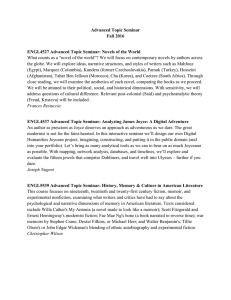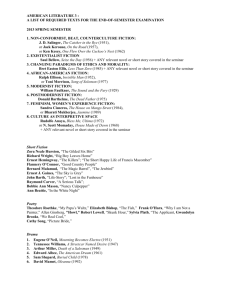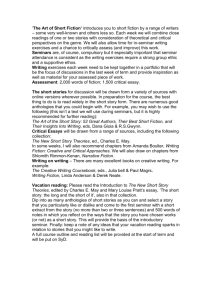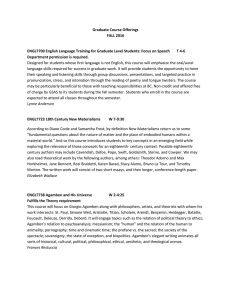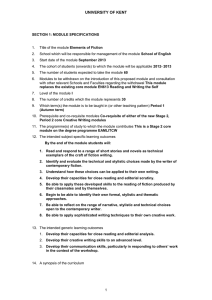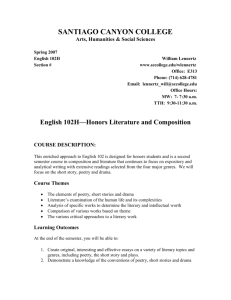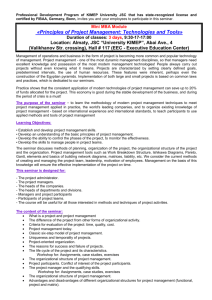2-page proposal file
advertisement
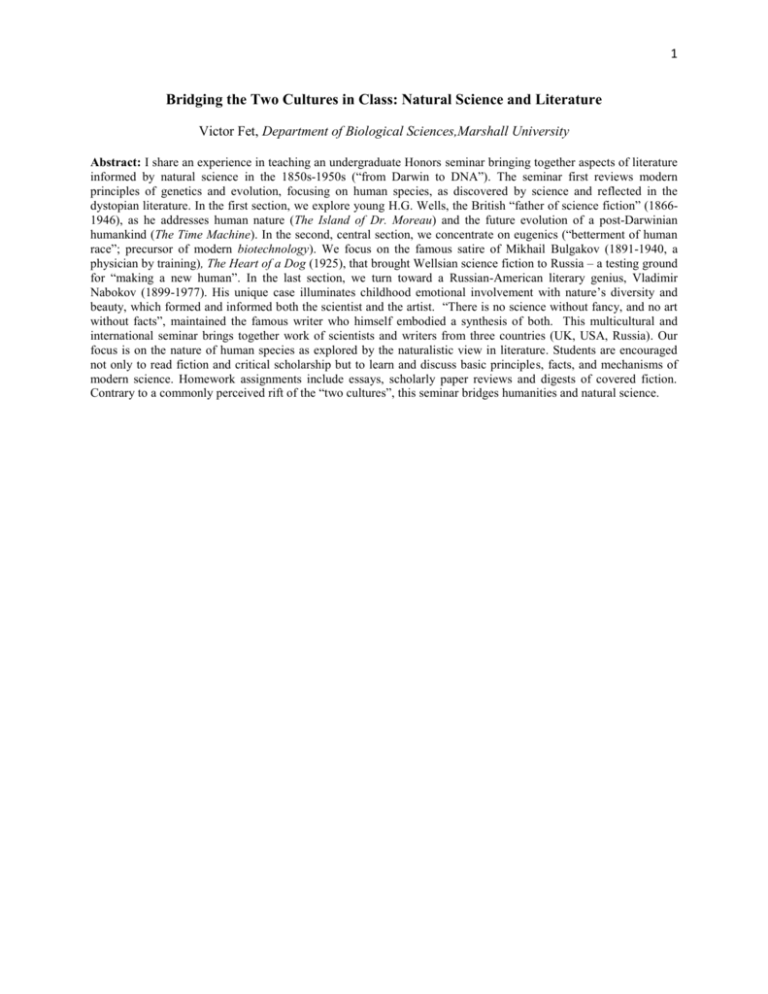
1 Bridging the Two Cultures in Class: Natural Science and Literature Victor Fet, Department of Biological Sciences,Marshall University Abstract: I share an experience in teaching an undergraduate Honors seminar bringing together aspects of literature informed by natural science in the 1850s-1950s (“from Darwin to DNA”). The seminar first reviews modern principles of genetics and evolution, focusing on human species, as discovered by science and reflected in the dystopian literature. In the first section, we explore young H.G. Wells, the British “father of science fiction” (18661946), as he addresses human nature (The Island of Dr. Moreau) and the future evolution of a post-Darwinian humankind (The Time Machine). In the second, central section, we concentrate on eugenics (“betterment of human race”; precursor of modern biotechnology). We focus on the famous satire of Mikhail Bulgakov (1891-1940, a physician by training), The Heart of a Dog (1925), that brought Wellsian science fiction to Russia – a testing ground for “making a new human”. In the last section, we turn toward a Russian-American literary genius, Vladimir Nabokov (1899-1977). His unique case illuminates childhood emotional involvement with nature’s diversity and beauty, which formed and informed both the scientist and the artist. “There is no science without fancy, and no art without facts”, maintained the famous writer who himself embodied a synthesis of both. This multicultural and international seminar brings together work of scientists and writers from three countries (UK, USA, Russia). Our focus is on the nature of human species as explored by the naturalistic view in literature. Students are encouraged not only to read fiction and critical scholarship but to learn and discuss basic principles, facts, and mechanisms of modern science. Homework assignments include essays, scholarly paper reviews and digests of covered fiction. Contrary to a commonly perceived rift of the “two cultures”, this seminar bridges humanities and natural science.
